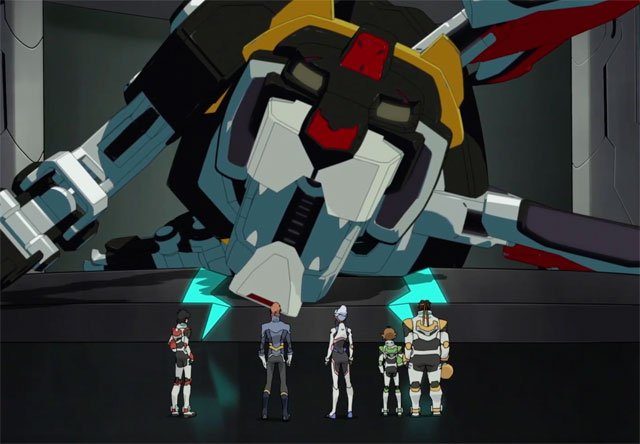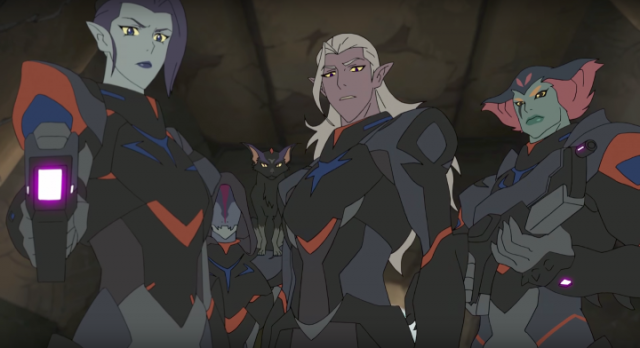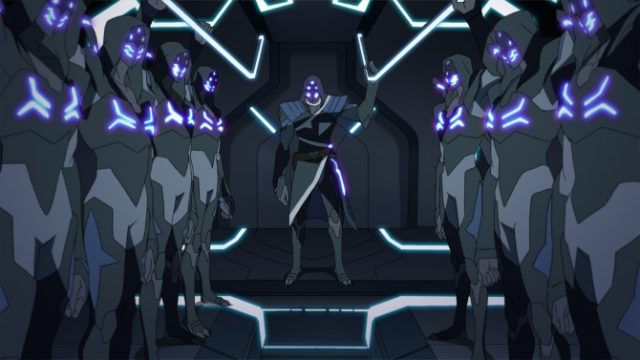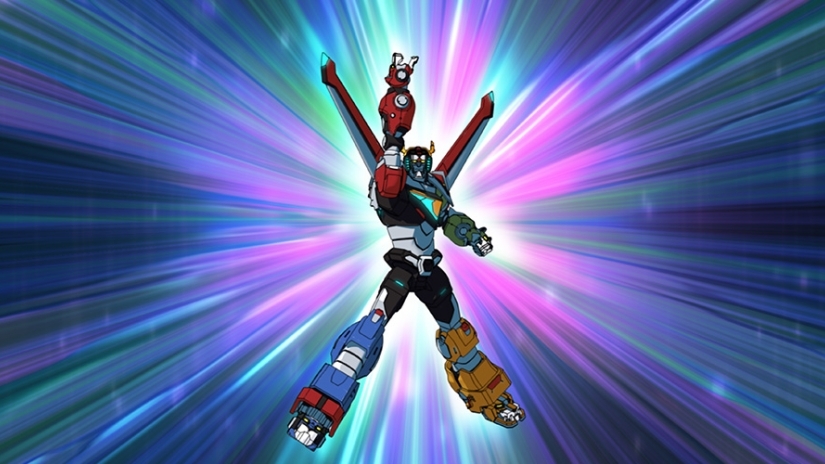NOTE: This review may contain some mild spoilers for the third season of, “Voltron: Legendary Defender.” That said, the review is written to accommodate those who have not yet watched the season, and as such, will avoid discussion of major plot developments
The second season of Voltron: Legendary Defender ended with the promise of big changes for the leads of the show. Emperor Zarkon has been defeated (though not killed), and Shiro, the leader of the Voltron Paladins, has now gone missing, leaving the Black Lion initially without a pilot. With the Galra Empire still standing though, and with its leadership duties now having been passed on to Zarkon’s son, Prince Lotor, the citizens of the universe still require Voltron to save them, and this means that Allura’s forces have to reform their team with a renewed sense of purpose, after being down a man, and finding themselves up against a dangerous new enemy.
The follow-up effort to the spectacular and thoroughly outstanding Season Two of Voltron: Legendary Defender has certainly been an interesting one, since the showrunners had opted to renew the show for two subsequent seasons at this point, though they also downscaled Season Three and Season Four into two shortened halves that will nonetheless release fairly close together. With Season Four premiering on Netflix this October, we can now enjoy Season Three in August. As you can imagine though, this altered structuring direction might lead to some viewers scratching their heads, especially when Season Three predictably fails to match the scale and intensity that comprised much of Season Two.

That’s not to say that Season Three is bad, of course. Voltron: Legendary Defender remains one of the smartest, coolest and most engaging original animated shows that the Netflix Original Series catalogue has to offer. Despite that though, billing this new batch of seven episodes as an entire season feels a bit odd, especially when it feels like this season is ultimately a mere appetizer for events to likely come in Season Four later this year. There’s still a lot of clever storytelling, and Lotor certainly makes an impression, but I wouldn’t be surprised if Season Four ends up pretty quickly leaving Season Three in its dust later, at least in terms of spectacle and action.
Still, the show taking the opportunity to re-assess and slow down a bit is not inherently a bad idea. The season has to begin by deciding what the Voltron Paladins have to do, now that Shiro is gone. This, as longtime Voltron fans may guess, proves to be the opportunity to have the show fully shuffle back its roster into the 1984 rendition of the team, at least mostly. Pidge and Hunk stay in the Green Lion and Yellow Lion, respectively, but Keith moves to the Black Lion, which chooses him as the most worthy successor to Shiro in terms of being a team leader, and when Lance finally comes to terms with this decision, the Red Lion bonds with him instead. This leaves the Blue Lion to be commanded by Princess Allura, another team twist that occurred in the original Voltron series from the 80’s, finally allowing Allura to more actively participate in the action, even though she’s predictably not on the same level as the rest of her team to start.

Because we only have seven episodes to establish this new Paladin ensemble, you can imagine that the show does need to speed through Allura’s ‘training’, or lack thereof, when it comes to piloting the Blue Lion. This also leads to the series giving the predictably frustrating excuse that Allura is a very fast learner, and can skip proper training because of that, but that opens up a bit of a plot hole, because, why wasn’t Allura chosen by a Lion before then? If she took so much less time to train and learn to pilot, then why would the Voltron Lions choose a random joker like Lance or Hunk over her? This doesn’t totally add up, but I suppose it’s a necessary evil to get Allura quickly settled in with the others, so it’s at least somewhat forgivable. It might have been nice if Allura’s transformation into a Paladin didn’t feel so hurried and sloppy though.
Nonetheless, there’s no complaining about the other major draw of Season Three; Prince Lotor, who is a fantastic new villain in pretty much every respect. Unlike Zarkon, who was an overwhelming brute that often dominated his enemies with sheer resources and strength, Lotor is strategic, cunning and unpredictable. Lotor is also routinely underestimated, and this leads to a lot of really clever, fun storytelling, especially in how well it keeps viewers guessing about Lotor’s character. Lotor doesn’t even seem like he’s fully loyal to his own father as well, further begging the question of whether the Paladins are even doing the right thing by trying to stop him. It’s a very interesting new antagonist dynamic that adds further shades of grey to the Galra Empire, who already got lots of great added depth during Season Two.

Since there’s only seven episodes in Season Three, there’s only so much I can discuss without some major spoilers, so I’ll simply say that this new season of Voltron: Legendary Defender remains very well-written and fun to watch for both kids and adults alike, even if not every story element gets enough time in the cooker. That said, the shortened length of seven twenty-minute-or-so episodes does make Season Three of Voltron: Legendary Defender especially easy to quickly binge through, even if the way it ends will just leave you wanting Season Four to hurry up and provide the promised payoff to what’s going on. Still, the revised team dynamic, awesome new villain and continued commitment to high-quality writing has Voltron: Legendary Defender still standing head-and-shoulders above most of Netflix’s other animated shows, and the focus on quality-over-quantity in this new season certainly doesn’t disturb that pedigree.

